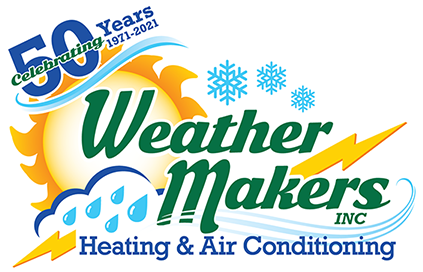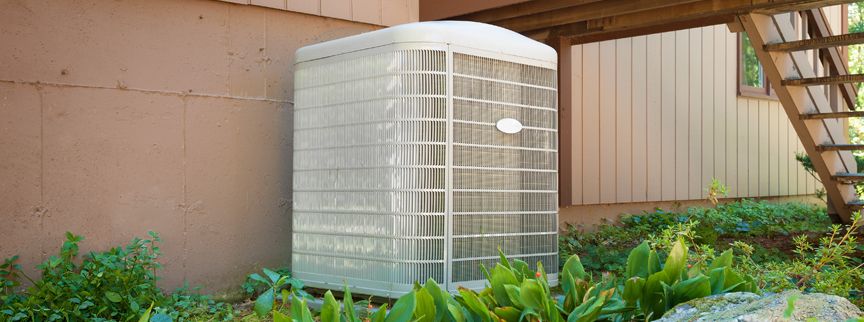Home comfort for moderate climates is often ideally handled with the use of a heat pump, especially if the heating needs are moderate. In some cases, this allows for two household comfort systems to be merged into one. In other cases, a heat pump cooling system is a sensible supplement to an existing furnace. Read some of the most popular choices for Chesapeake residents.
High-Efficiency Heat Pump Cooling Systems
If you are thinking about replacing your air conditioner, you may be concerned about obtaining equally good performance from a heat pump cooling system. In fact, the SEER, seasonal energy efficiency ratio, of such systems can reach levels that are comparable with high-efficiency air conditioners, meaning that you will not need to compromise your home comfort for moderate climates if you make this type of change. A pump system is equivalent to an air conditioner in almost every way. The primary exception is that the heat exchange process in the pump system can be reversed. In an air conditioner, refrigerant absorbs heat from the inside air, causing temperatures in that air supply to drop prior to circulation. The heat is then released into the outdoor air. With a pump system, the process can be reversed so that heat is absorbed from the outside environment and released into the home.
As you consider this upgrade to your home comfort equipment, you will want to balance your interest in high efficiency levels with your budget. There are efficient units in various price ranges, and the primary benefit of these higher efficiency levels is lower utility costs. You will also want to consider high-efficiency options due to more advanced dehumidification features and adaptive technology since the Chesapeake area tends to have high humidity levels throughout the year.
Hybrid Heat Configurations
Because of the typically milder winters in the area, a heat pump can work nicely in tandem with a furnace to ensure that you always have just the right amount of heat for your home. You will want to explore pump systems that are identified as having this capability so that you can configure your system to work seamlessly as heating activity is provided according to outside conditions. A pump system is excellent during milder winter conditions, providing efficient and comfortable heating activity. However, an air-source pump begins to perform less efficiently when temperatures drop below the freezing level. This is due to the fact that the refrigerant absorbs heat from the outside air and transfers it to the inside environment. With less heat in the outside air, it is more difficult for sufficient heating to occur.
In a hybrid configuration, system controls direct the furnace to take over heating activity at this point. A furnace provides powerful and reliable heating on those icy days during which a pump system would struggle. System controls handle the transition, removing any worry that you might forget or neglect to make a needed change. You are assured of efficient heating and excellent comfort levels throughout the winter months, allowing you to streamline your utility costs even more.
Renewable Energy and Geothermal Heat Pumps
With so many streams, creeks, and bodies of water in the area, renewable heating and cooling energy is a popular consideration. A geothermal system taps into the earth’s energy to draw heat from the ground or water. A ground-source system is ideal if you have sufficient land for the installation of ground coils. Horizontal coils require a great deal of space, but vertical coils can be used if your area is a little more limited. A water-source system can work in concert with your well or with a small lake or pond as the coils are immersed. The ground and water temperatures are much more stable than the air temperatures, allowing for both heating and cooling activity to occur more efficiently.
A geothermal system is a popular option due to potential tax credits for homeowners. Although high-efficiency tax credits for HVAC equipment have expired, renewable energy systems are still eligible for a potential federal tax credit of 30 percent until the end of 2016. To claim this credit, the geothermal HVAC unit must be installed and operating prior to the end of the tax year in question. An HVAC contractor can provide the details about types of units that qualify for this benefit. Additionally, your HVAC professional can identify building code issues that might pertain to your home and your preferred geothermal equipment options.
Consult an Expert
Before you update your equipment to increase home comfort for moderate climates, it is necessary to compute both heating and cooling loads. This ensures that the system selected will provide optimum comfort levels throughout the year. Additionally, your HVAC contractor will assist as you compare your preferred models to your budget. With a modern pump system for heating and cooling, you may also want to consider updating your thermostat so that you can achieve more precise levels of comfort in your home.
At Weather Makers, Inc., we are available to provide an overview of the most appropriate system solutions for our region. You can check out various options, including our geothermal solutions, or you can call us at 757-263-4869 to schedule an estimate.

